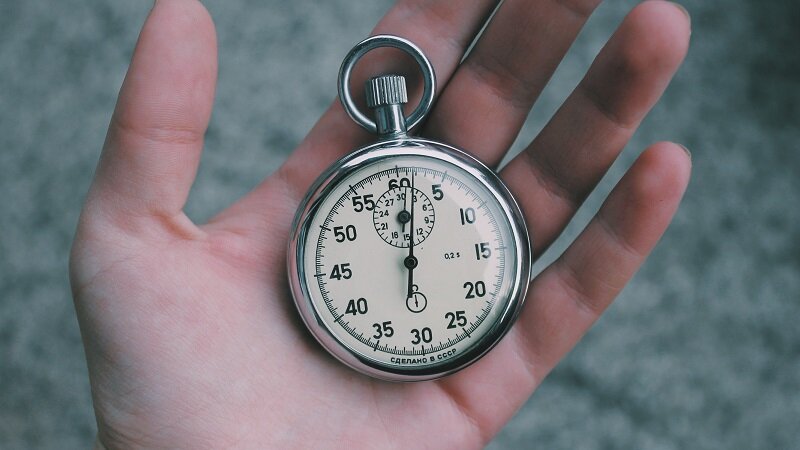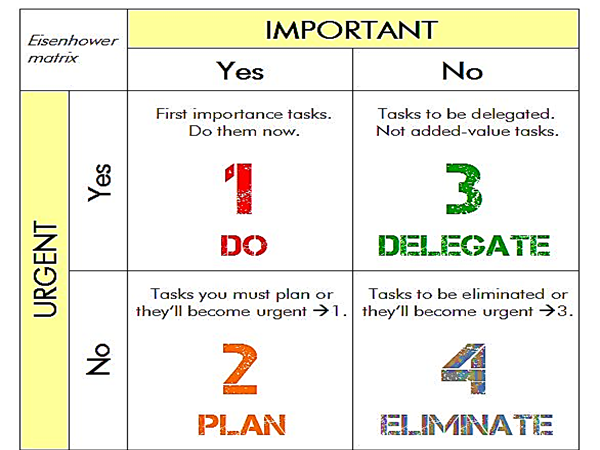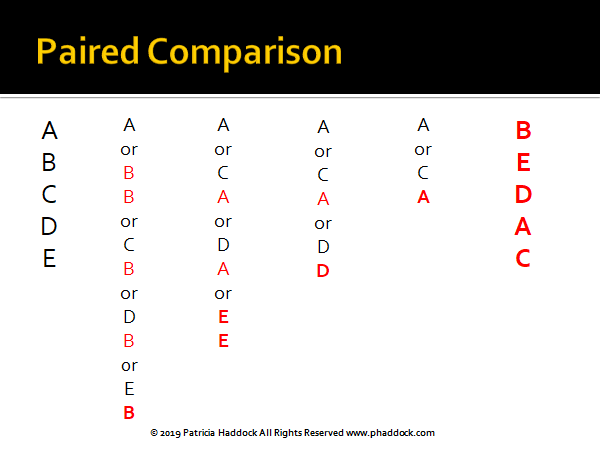Time Management and Productivity
Episode #7 of the course Ten key skills for career advancement by Patricia Haddock
Welcome to today’s lesson. Yesterday we focused on skills for conflict resolution. Sometimes conflict arises when there is a difference of opinion about priorities and goals because often you must rely on others to get your job done. Effective time management relies on your ability to deliver results and defined outcomes, which are necessary for career success and advancement. When someone else fails to do their part, it affects your ability to your part.
“Focus on being productive instead of busy.” —Tim Ferriss
Understand the Differences Among Productivity, Efficiency, and Effectiveness
• Productivity means that you are getting things done.
• Efficiency means that you’re accomplishing tasks faster than before.
• Effective means that you are getting the right things done. You are achieving the results you need.
Productivity and efficiency together won’t deliver enough energy to propel long-term success. That comes from being effective—getting the right results.
Your ability to be effective starts with setting and achieving priorities.
Set and Honor Priorities
Your ability to set and honor priorities is the key to delivering the results your job requires. However, it can be difficult to distinguish between high priorities when faced with seemingly competing demands. The Eisenhower matrix and the Paired Comparison method can make this challenge easier to face.
Dwight D. Eisenhower, 34th president of the United States, developed the matrix when he was the Allied Forces Supreme Commander during World War II.
Start by sorting your tasks and activities into one of the four quadrants. After you have allocated each to a quadrant, use Paired Comparison to establish the relative importance of each. In this process, you assign priorities by comparing two items on your list.
Let’s say you have five tasks in Quadrant 1. To determine the order of importance, compare A to B. Whichever is more important is compared to C, and so on. When you complete this exercise, you have a prioritized list of each task and activity in each quadrant. Now you can set aside time on your calendar for your highest priorities.
Strengthen Focus and Concentration
Concentration is a skill that can be learned and enhanced. The payoffs of learning how to concentrate are many. It puts more time in your life, you complete tasks more efficiently and with fewer errors, and it raises your feeling of satisfaction in a job well-done, which improves your self-esteem and self-confidence.
Pomodoro technique uses the power of focus to get things done.
• Set a timer for 25 minutes and focus on one task without interruption.
• When the timer goes off, take a 5-minute break.
• Repeat three or four times and then take a longer break. Stretch your muscles. Look away from your computer screen and focus on something in the distance to rest your eyes. Take a short walk outside, drink some cold water, have a healthy snack to rev up your energy.
The timings are flexible. If you find that 25 minutes is too brief, that you’re just getting into a task when the timer goes off, or you have entered flow, set a longer time. However, don’t push yourself beyond 60 or 90 minutes because research shows that your ability to focus will crash and burn. You need to give your brain a break, so it can process and recover from intense activity.
Be More Efficient Every Day
Efficiency comes from performing tasks faster with less time lost. Here are some tips to be more efficient.
1. Set aside time each day for routine tasks, such as handling email, text messages, social media, writing and sending invoices, handling incoming mail, and so on. By bundling these activities into discrete pockets of time, you will accomplish the task faster than you would be doing it piecemeal.
2. Stop multitasking. Multitasking is really serial tasking. Your attention switches from one task to another so quickly that you believe you are multitasking when you aren’t. Because your focus is switching on and off, each task will take longer than if you focus and complete one task at a time.
3. Create labels that make it easier for you to find what you need quickly and immediately file away documents when you are finished with them.
Action Steps to Improve and Showcase Your Time Management Skills
• Each week identify your top 5 priorities for the following week.
• Set aside time on your calendar to work on your top 5 and treat the allotted time as if it was an appointment with an important client.
• Make sure your work area is neat and orderly.
• Keep a weekly record of what you achieved during the week and what you did toward your top 5 priorities.
Tomorrow, we’ll dive into the organization, which works together with time management to make you more productive, efficient, and effective.
Patricia
Recommended video
This Is How Successful People Manage Their Time by Motivation2Study
Recommended books
Atomic Habits: An Easy & Proven Way to Build Good Habits & Break Bad Ones by James Clear
Eat That Frog!: 21 Great Ways to Stop Procrastinating and Get More Done in Less Time by Brian Tracy
Share with friends



